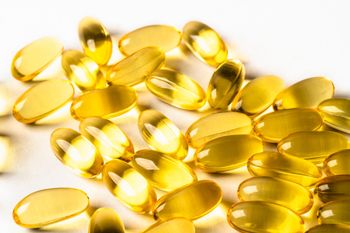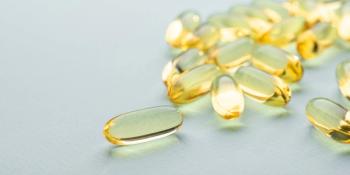
Newswatch
Consumers Not Responding to Probiotic Cheese
Consumers Not Responding to Probiotic Cheese
Probiotics have witnessed a rapid rise to public prominence since Dannon (Allentown, PA) launched probiotic drinkable and spoonable yogurts on the U.S. market in 2005. Even so, probiotic cheese has won little favor, according to new Euromonitor research.
Despite a slew of launches in 2007, fortified and functional cheeses accounted for less than 1% of the $100 billion global cheese market, with probiotic versions faring very poorly, according to Euromonitor.
"Sadly, consumer response to these exciting launches has been lukewarm at best, and none have yet achieved mass-market success," said Euromonitor analyst Ewa Hudson. "The main reason for probiotic cheese's failure to take off is that, unlike yogurt, it is not really regarded as a healthy food."
She added, "It will never match the success of probiotic yogurt, which is rapidly becoming somewhat of a new industry standard."
In comparison, spoonable and drinkable yogurts had grown to global sales of $16 billion, or 32% of the world pro- and prebiotic market in yogurt products.
"Although [cheese is] high in calcium and protein, health-conscious consumers know that the fat content of cheese is nearly on a par with that of chocolate, and that [cheese] is full of unhealthy saturated fat to boot," Hudson said.
"On top of that, cheese contains a lot of salt, a known contributory factor to high blood pressure. In short, cheese is the devil's food for those watching their waistlines and/or their cardiovascular health. For avid cheese eaters unconcerned with such pesky issues, probiotic variants hold no attraction, and certainly do not warrant paying a premium for."
"Consumers who know their cheeses do not want functionality and consider any added ingredient, even probiotics which do not impair the flavor in any way, as a type of adulteration," Hudson observed.
"On the whole, it seems that adding probiotics to standard cheese offerings or to premium gourmet ranges is not a good idea because it misses the key target group of health and wellness consumers and, at the same time, alienates average and premium cheese buyers."
In contrast, reduced-fat cheese has been performing well. Global sales nearly doubled between 2002 and 2007, reaching $9 billion. By 2012, Euromonitor estimates the figure will be $11.5 billion.
Deal Signed for Potential Anticancer Broccoli Extract
Evgen Ltd. (Wales, UK) has joined with a noted Danish vegetable researcher to bring to market broccoli extracts that have demonstrated anticancer potential.
Evgen has gained "worldwide and exclusive" rights to market the extracts that are being researched by the University of Copenhagen's Barbara Ann Halkier, PhD. The extracts may have a role to play in the prevention of diseases such as prostate cancer.
Halkier last year won an award valued at more than $38,000 from fellow Danish supplier Danisco for her work in the area of bioactive natural substances, based around broccoli and other plants such as tobacco.
Evgen chief executive officer, Stephen Franklin, PhD, estimates [that it will be] three years before the broccoli extract finds its way into products. Food supplements and medicines are its most likely candidates, he said.
Evgen hopes that within that time frame that large-scale manufacture of the "purified bioactive molecules" will be possible.
"We could develop a branded line of supplements in the men's health area, or we could brand the ingredient and sell it to food supplement and functional food makers," Franklin said.
"People might associate this kind of extract with antioxidants but it is much more specific than that. Research indicates this extract operates in specific bioactive pathways."
The bioactives in question are glucosinolates, one of about 30 families of compounds found in cruciferous plants such as broccoli.Halkier has been working on extracting those from cruciferous vegetables using fermentation technology.
Robert Terry, PhD, of the University of Copenhagen said the evidence was building behind the compounds in question, and better trials were likely in the future.
"There is strong scientific evidence to suggest that consumption of broccoli or administration of certain glucosinolates can provide protection against some types of cancer," he said.
"This development, if successful, will mean that for the first time, we will have purified, quality-controlled products for entry into human trials. Ultimately this will give rise to a new generation of products with health benefits that people can trust."
Other research indicates that eating cruciferous vegetables can benefit the lungs, heart, the bladder, and overall immunity, as well as diabetes patients.
Group Questions Functional Foods
The influential consumer welfare advocate Which? (London) has grown increasingly critical of certain functional foods.
In a minireview of the €682 million UK omega-3, plant sterols, and probiotics markets, Which? said that some products could deliver health benefits-but it questioned foods that possessed only low doses of functional ingredients.
The Which? letter was picked up by one UK mainstream tabloid, The Daily Mirror, which ran the headline: "Omega-3 Superfoods 'Pointless'." In its letter, Which? noted that while 59% of its own members consumed functional foods, 81% were skeptical about the claims being made for them.
"Products with added omega-3, probiotics, or plant sterols and stanols can be beneficial for certain people, but not all, and they may be unsuitable for those with certain conditions," the review concluded.
"Some [ingredients] have to be consumed in large amounts to be beneficial, or they might work only for as long as they're taken, which can prove expensive."
The report noted that, "to get any real benefit from the omega-3 in Heinz Baked Beans with Omega 3, for example, you'd need to consume six tins a day, which would cost a whopping $1752 over a year." One salmon fillet a week would deliver the same omega-3 payload, the review said.
The Which? report concluded by issuing this advice for consumers considering purchasing functional foods:
- Have I got a health concern that could benefit from using probiotics, omega-3, or plant sterols and stanols?
- Do I really need omega-3, probiotics, or plant sterols and stanols? Could I make changes to my diet instead?
- Can I realistically eat the amount of omega-3, probiotics, or plant sterols and stanols needed to reap benefit?
- Can I afford to spend extra money on foods containing omega-3, probiotics, or plant sterols and stanols?
Omega-3 Antioxidant Claim Rejected by EFSA
The European Food Safety Authority (EFSA; Parma, Italy) has turned down an Article 13 health claim linking omega-3 consumption with boosted antioxidant activity in the body.
Responding to Brudy Technology (Barcelona, Spain) in regard to its ingredient, Algatrium, EFSA's panel on Dietetic Products, Nutrition, and Allergies concluded that causality between the ingredient and boosted antioxidant activity had not been demonstrated, and rejected the claim.
Algatrium contains 67% DHA and 10% EPA as well as other long-chain fatty acids.
The European Union is attempting to formulate a centralized list under the nutrition and health claims regulation that is due for completion in January 2010. To date, EFSA has published only approximately 50 opinions of a list containing more than 4000 claims.
Eye Health Market to Flourish, According to F&S
The European market for eye health supplements is poised to take off, and well-positioned products are set to benefit from a rise in consumer interest, according to market researcher Frost & Sullivan (F&S; Palo Alto, CA).
The group's new report, European Eye Health Ingredients Market, published on its Web site, claims the eye health market was worth $43 million in 2007, estimating this figure to more than double to reach $87 million in 2014.
"The market for eye health ingredient products is in its infancy, and the timing is right to initiate the successful development of this market. Strategically positioned brands will push participants in the eye health ingredients market into the right commercial arena, while focusing on their health benefits," said F&S research analyst Natasha Telles.
Supplement ingredients currently linked to eye health benefits are primarily antioxidants, including lutein, beta-carotene, zeaxanthin, astaxanthin, and bilberry.
According to F&S, demand for such products is increasing as consumers turn to nutrition to protect against blinding diseases such as age-related macular degeneration and glaucoma.
Incidence of these conditions is increasing as a higher life expectancy brings with it a multitude of age-related illnesses. This, in turn, has prompted older consumers to make lifestyle changes, including adjusting their approach to nutrition.
"The focus on eye health has become a primary concern in today's health-conscious food industry," said Telles.
However, according to F&S, the market is faced with obstacles such as varying regulations that are hampering eye health claims, and market credibility. Other challenges include price pressures due to competition from lower-priced ingredients manufactured in Asia.
"Legislation, in particular, is a pertinent challenge for manufacturers, as such a scenario results in ambiguous legislative requirements. For instance, eye health ingredients such as lutein and astaxanthin are not covered in the positive list of the food supplement directive and are awaiting the results in 2010."
Cherry Extract Seeks Superfruit Status
Australian Functional Foods (AFF; New South Wales) has released two cherry-based extracts for which it is promoting a high antioxidant content.
The company said the high anthocyanin content of cherries offered antiinflammatory, obesity, sports recovery, and muscle repair benefits. It noted that cherries were also a low-GI food. AFF said that its offerings retained cherry flavor and color.
"These two ingredients also offer great versatility to food manufacturers, and we can see applications in the beverage, confection, and dairy sectors, as well as the direct nutraceutical market," said AFF director Robin Fieldhouse, PhD.
EFSA Rejects Ocean Spray's Health Claim
The European Food Safety Authority (EFSA; Parma, Italy) has issued a negative opinion to Ocean Spray (Lakeville, MA) for an Article 13 health claim relating consumption of cranberry and urinary tract health in women.
EFSA's panel on Dietetic Products, Nutrition, and Allergies (NDA) found Ocean Spray's scientific dossier failed to support a link between urinary tract infection reduction and consumption of Ocean Spray cranberry products containing 80 mg of cranberry proanthocyanidins per serving.
Ocean Spray submitted its claim in relation to juice drinks and dried berries. However, the NDA took issue with several of the studies submitted, noting that some used different formulations from those proposed in the claim, and that others had small samples or lacked a control group, were not sufficiently lengthy, or had high drop-out rates.
These flaws limited the claim's "value as a source of evidence to substantiate the claimed effect," the NDA said of Ocean Spray's submitted claim, which stated: "Helps reduce the risk of urinary tract infection in women by inhibiting the adhesion of certain bacteria in the urinary tract."
DSM Wins Big at Expo West
DSM's (Basel, Switzerland) rebranded peptide, tensVida, won its second major award in six months when the blood pressure-controlling ingredient took the NutrAward at Expo West (Anaheim, CA) in March.
Formerly known as TensGuard, tensVida beat off competition from AHD's fiber ingredient, LuraLean, and Gourmetceuticals' (Big Horn, WY) PPL-240, an antioxidant derived from a South American fern. The ingredient also won most innovative new product at the Health Ingredients Europe (HIE) trade show in Paris in November.
Newsletter
From ingredient science to consumer trends, get the intel you need to stay competitive in the nutrition space—subscribe now to Nutritional Outlook.





